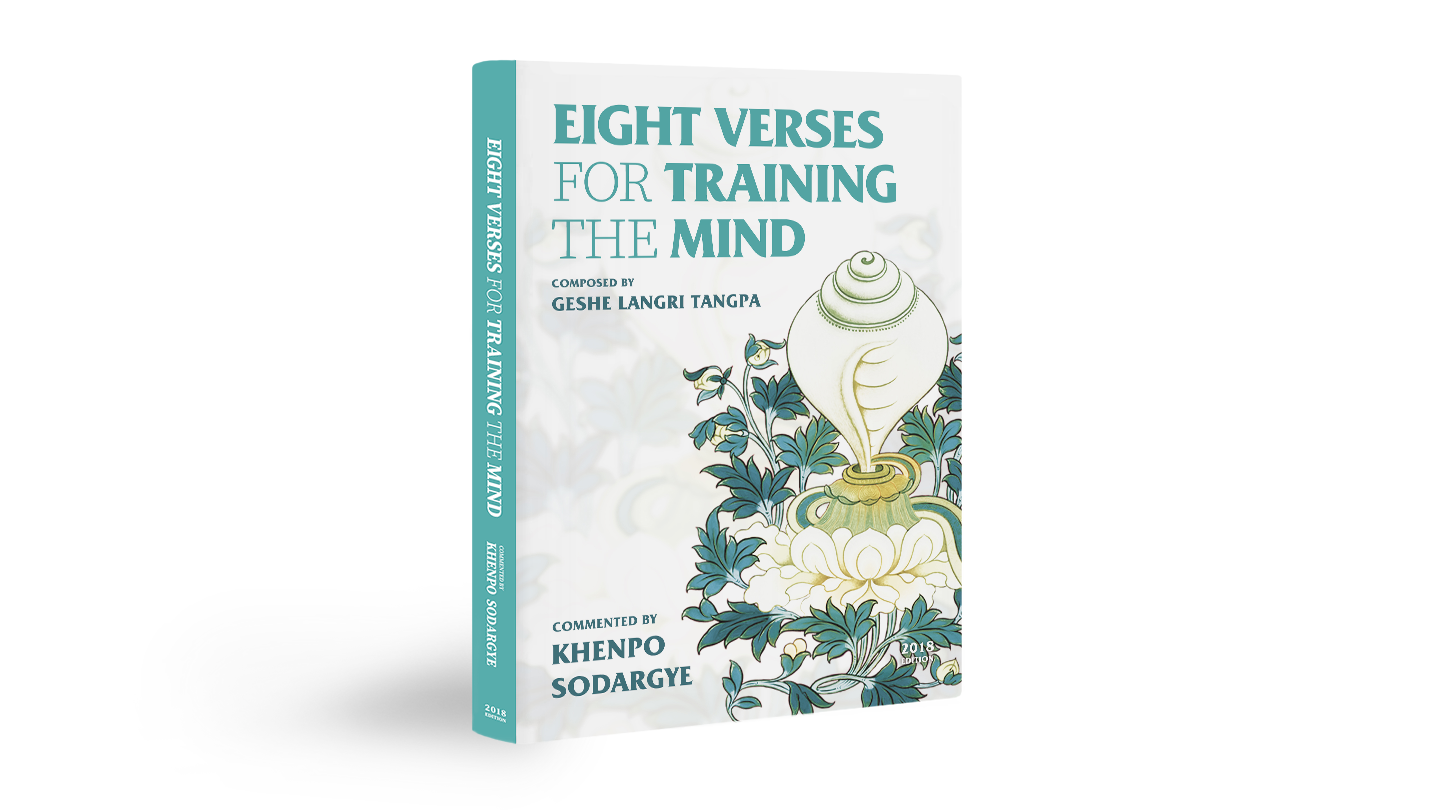Langri Tangpa’s Eight Verses for Training the Mind is easy to understand in its literal meaning, but it is indeed very difficult to truly combine that understanding with authentic practice.
Eight Verses for Training the Mind
Geshe Langri Tangpa’s Eight Verses for Training the Mind, is one of the most important texts of the lojong or mind training tradition in Tibetan Buddhism. It has eight instructions, which are presented simply, but profound in meaning. With the guidelines offered in this text, practitioners can easily abandon the self-centered attitude and cultivate genuine altruism.
The eight verses appear independent, but are in a logical sequence and form a comprehensive system of lojong, or mind training. The first seven verses introduce skillful means for cultivating compassion. The eighth verse introduces wisdom that enables practitioners to realize the true nature of all phenomena. For genuine Dharma practitioners, the practice of even one of these verses is of great benefit. One can even attain enlightenment by only practicing one or half of one verse in his or her life.
Actually, only Bodhisattvas abiding on the first level or above, can fully perfect the practice of Eight Verses for Training the Mind. Nevertheless, ordinary practitioners can rely on similar practices. Applying these eight instructions as much as possible, you will gradually progress toward achieving such a state in spiritual practice.
Khenpo Sodargye Rinpoche’s Commentary on Eight Verses for Training the Mind serves as a down-to-earth guide for all practitioners. It contains precious oral instructions of H. H. Jigme Phuntsok Rinpoche, as well as Khenpo Rinpoche’s own experience, quotes and stories from scriptures. This commentary provides specific guidelines for practitioners to implement the eight verses and apply compassion and wisdom in their daily lives.



Now that we have received these pith instructions, we should apply them as much as possible in our daily lives. If we cannot master the practices of these pith instructions, no matter how much we meditate on the Great Perfection, all of our efforts will be in vain.

When afflictive emotions such as attachment or anger arise, we should directly examine the nature of these emotions, so that we will not be deluded by them, and will ultimately be released from bondage and achieve enlightenment.

Resources
Whenever someone out of envy
Does me wrong by attacking or belittling me,
I will take defeat upon myself,
And give the victory to others.
